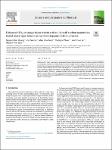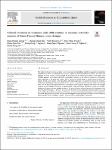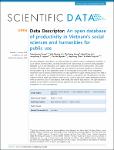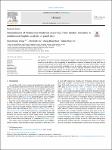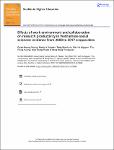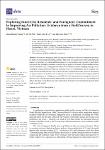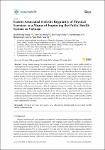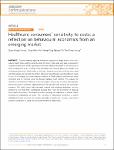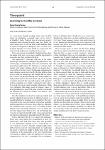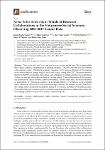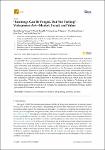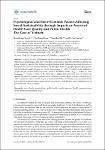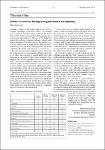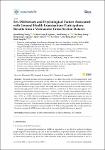Browsing by Author Vuong QH
Showing results [10 - 29] / 39
Solutions for mitigating and reducing environmental pollution are important priorities for many developed and developing countries. This study was conducted to better understand the degree to which inner-city citizens and foreigners perceive air pollution and respond to it, particularly how much they willingly contribute to improving air quality in Vietnam, a lower-middle-income nation in Southeast Asia. During mid-December 2019, a stratified random sampling technique and a contingent valuation method (CVM) were employed to survey 199 inhabitants and 75 foreigners who reside and travel within the inner-city of Hanoi. The data comprises four major groups of information on: (1) percepti... |
Retraction notices (RNs) are historical documents and must be as informative as possible to ensure the scholarly record is complete. |
Although studies have explored the predictors of book reading interest among children, little is known about the underlying mechanism that helps children become interested in reading books. This study attempt to demonstrate: (1) how book-reading interest is driven by reasons for choosing books (recommendation or personal preference), (2) how students with high and low academic achievements are motivated by different thinking pathways, and (3) how home scholarly culture improves book-reading interest through such pathways. Using Bayesian analysis on a dataset of survey responses from 4966 Vietnamese secondary students (11–15 years old, sixth to ninth grade), we found: (i) Reading inter... |
Although most Asian states are signatories to UNCLOS, which offers options for dispute resolution by either voluntary or compulsory processes, in reality fewer than a dozen Asian states have taken advantage of such an approach. The decision to adopt third-party mechanisms comes under great scrutiny and deliberation, not least because of the entailing legal procedures and the politically sensitive nature of disputes. Vietnam claims the second-largest maritime area in the South China Sea dispute after China. A comparison of two recent cases—the arbitration between the Philippines and China and the conciliation between Timor-Leste and Australia—highlights the importance of selecting betw... |

